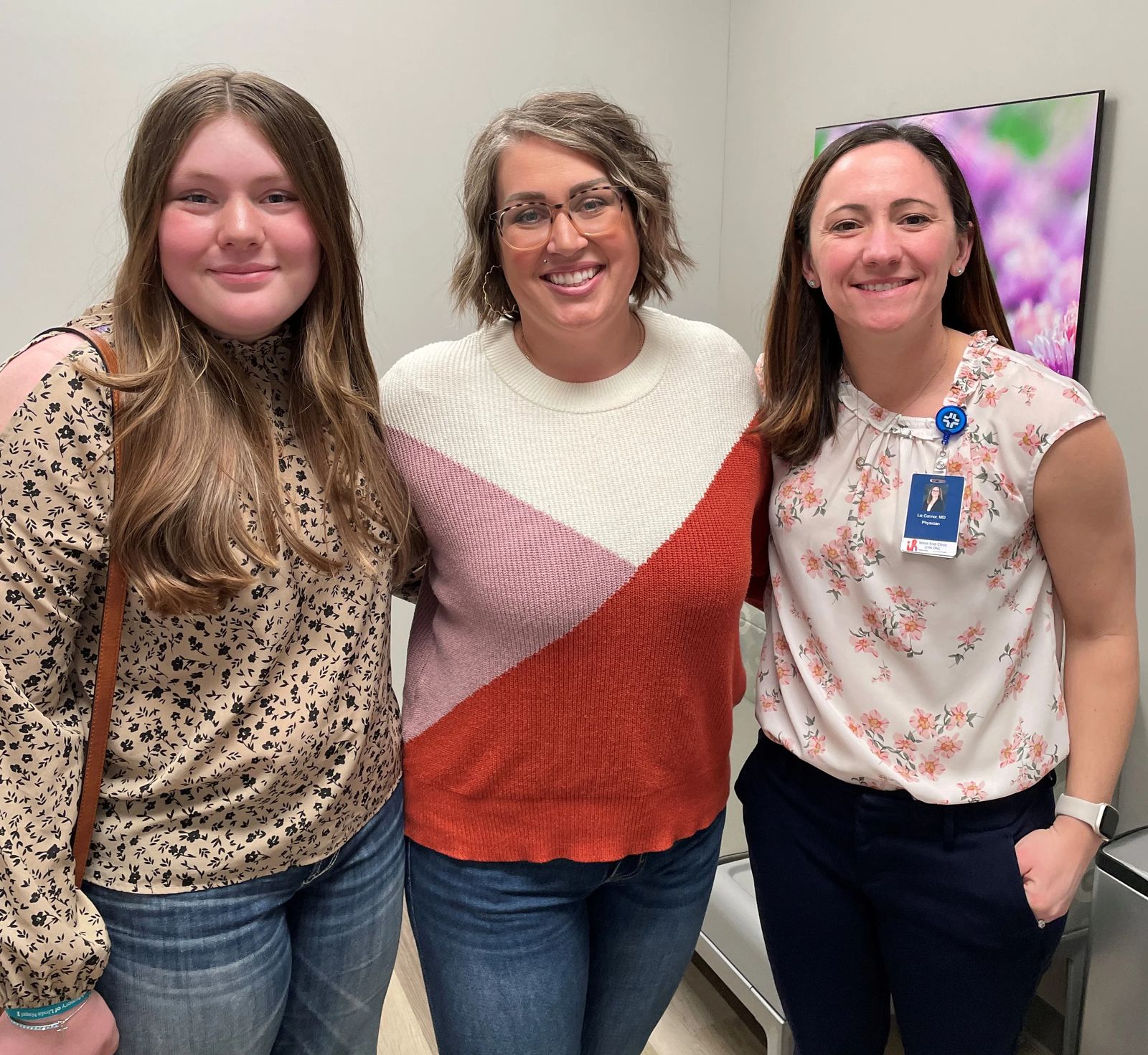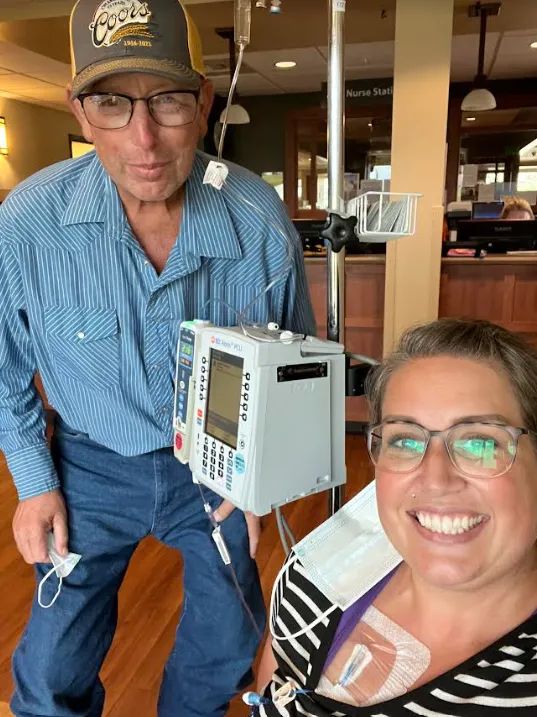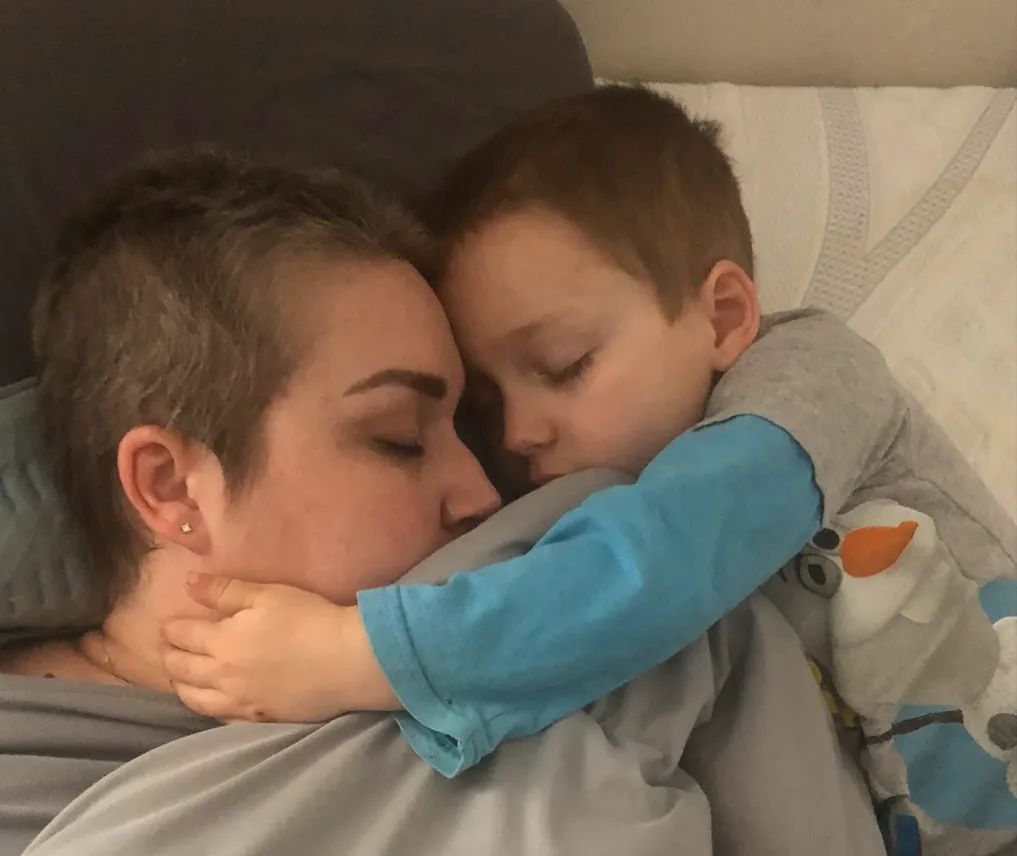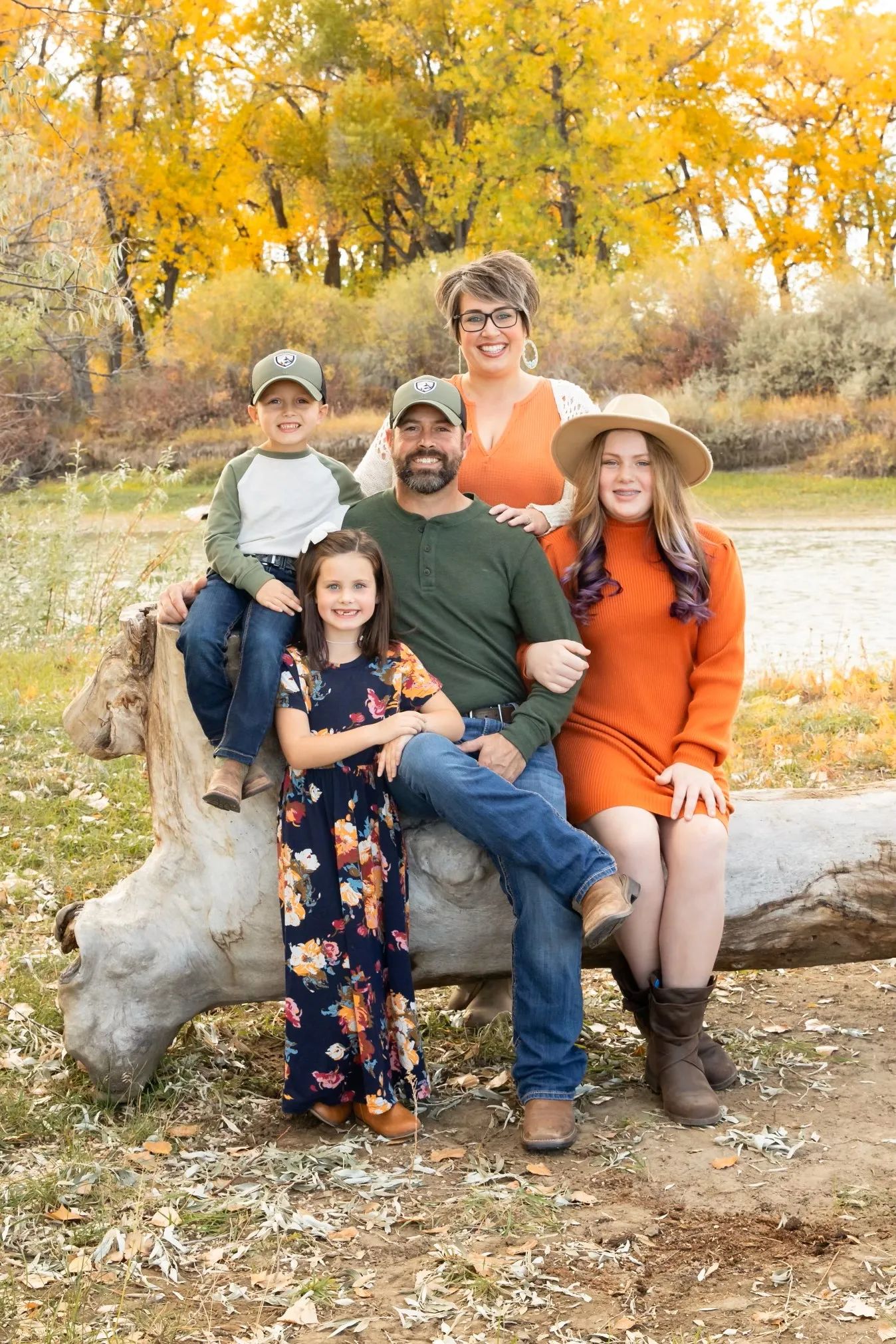
Gynecologic cancer care
Advancements are improving survivorship
St. Vincent Regional Hospital
When Alese Beckman of Edgar, Montana, had pain and swelling in her leg in June 2020, a cancer diagnosis was the furthest thing from her mind. After further examination and testing, her medical providers found a large tumor in her pelvis. Alese was facing a stage four cervical cancer diagnosis.
Because the cancer was advanced and doctors found additional tumors, her providers recommended an aggressive treatment plan.
"I was diagnosed with stage four cervical cancer on Monday and started chemotherapy on Tuesday," shared Alese. "It was quite a shock."
At just 34 and with three young children, coming to terms with her diagnosis and the treatment plan was overwhelming as she shared the news with family and friends. Beckman's case is a rare type of cervical cancer that would not be discovered through an annual pap test, a routine screening for cervical cancer.
Alese responded well to initial rounds of chemotherapy, but after several treatments, they discovered a new tumor in October 2020. Her care team recommended that she consider immunotherapy, a new development in cancer treatment that uses the patient's immune system to fight cancer. Advanced testing found that Beckman could benefit from the treatment. Cancer care is becoming more individualized with genetic testing and pathology, allowing oncologists to use targeted treatments.

She began immunotherapy in November 2021, followed by radiation therapy. The immunotherapy is delivered through infusions that Alese receives every six weeks.
"Alese's treatment has followed new developments in cancer care," According to Dr. Liz Connor, a gynecologic oncologist at Intermountain Health in Billings. "She was right on the leading edge."
Approximately 89,000 U.S. women are diagnosed with gynecologic cancer each year. The latest highly specialized approaches to surgery and treatment offer the best hope of recovery for many women.

Advanced testing and individualized treatment plans offer a range of effective treatment options for women that were not available even five years ago, according to Dr. Connor.
"Genetic and tumor testing can help determine which treatments will be most responsive to the individual patient," said Dr. Connor. "Care is very much individualized, and we treat each person as effectively as possible."
In addition to her medical providers, during her battle with cancer, Alese has relied on the care, compassion, and generosity of her family and community. In October 2020, her community hosted a large fundraiser to support her and her family, hosted at her aunt's ranch. Because she was undergoing treatment and concerns related to the COVID-19 pandemic, Alese only made a brief appearance to thank her community for the support.
"It was a huge party," said Alese. "All my friends said it was like a Carbon County reunion."
Alese is so thankful that she has received care close to home after exploring treatment options at nationally recognized cancer centers out of the state, "Everything they are doing in Billings is the same treatment I would get at those leading centers."
Having this care in Billings has allowed her husband, Chad, and other family members accompany her to most of her treatments.
"You need to have your family with you, and you want to be healing in your home," said Dr. Connor. "We work very hard for our patients to have access to the cutting-edge treatments expected anywhere in the country."

By October 2021, almost a year after beginning the immunotherapy, Alese’s doctors detected no signs of her cancer on her regular CT scans.
"It was all gone. And I have had clear scans ever since," said Alese. "Doing my research, I read that the average lifespan of women with my diagnosis is 18 months. And here I am, three and a half years later."
Alese is back to work at a salon in Joliet, where she has worked for a decade, and running a small business out of her house. But living with cancer has changed her life.
"I feel good!" she shared. "Your perspective changes. I cut back on all the extra things I do to spend more time with my family and be there for my kids. I also found a faith that I didn’t know existed and that was something I had to hold onto to get me through. "
Her journey has impacted her family as well, especially her oldest daughter.
"It was tough on her," shared Alese. "She was able to come to my infusions with me, and she helped take care of her brother and sister while I was in treatment.”
Now in eighth grade, her daughter just wrote a school paper about wanting to become an oncologist or work with cancer patients to help people like her mom.
She writes, "I remember the night she said she was cancer free... This huge weight was lifted. I felt like I could finally breathe again. I want people to feel how I felt when all that pressure was gone. Now, I know that working in the doctor field isn't always sunshine and rainbows. But, I'm going to try and help people feel better. We had a miracle happen. I want to make miracles for other people now. That is my passion, to help people."









